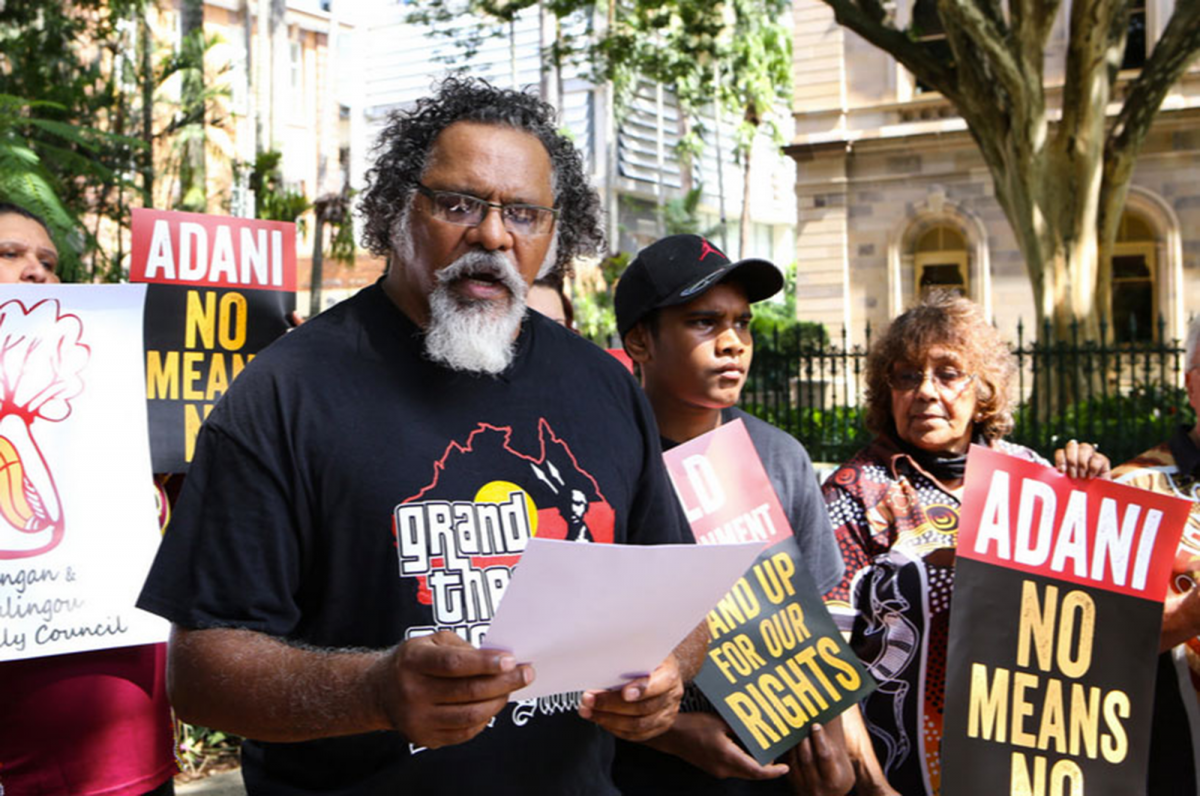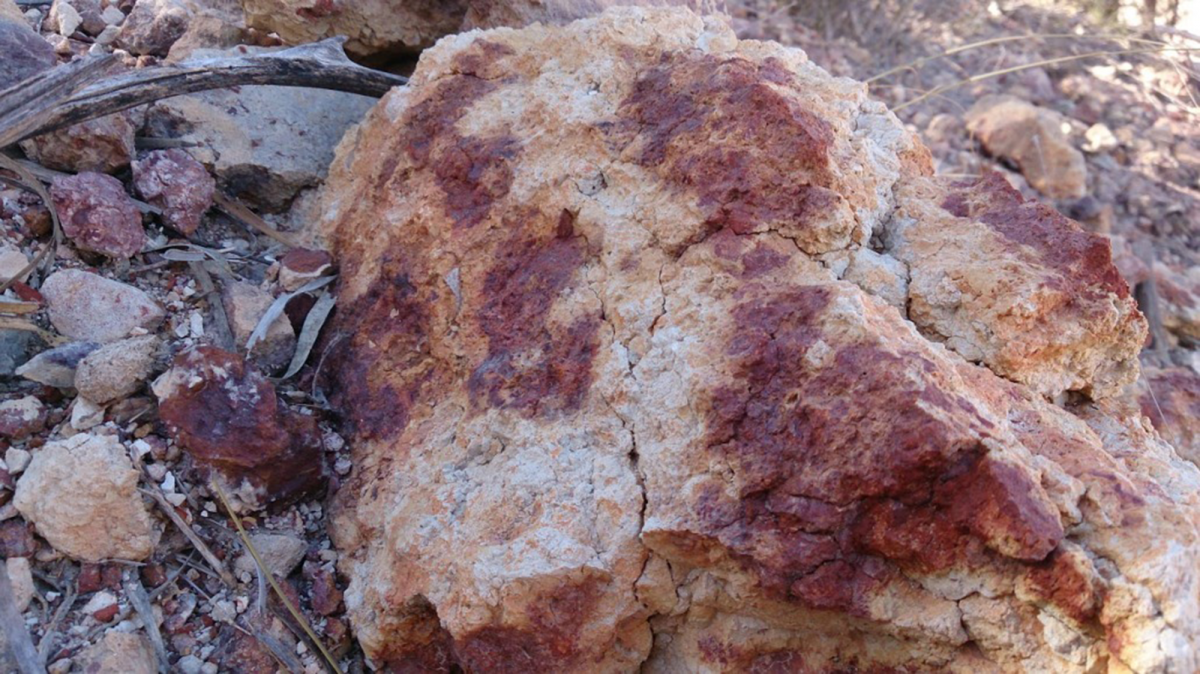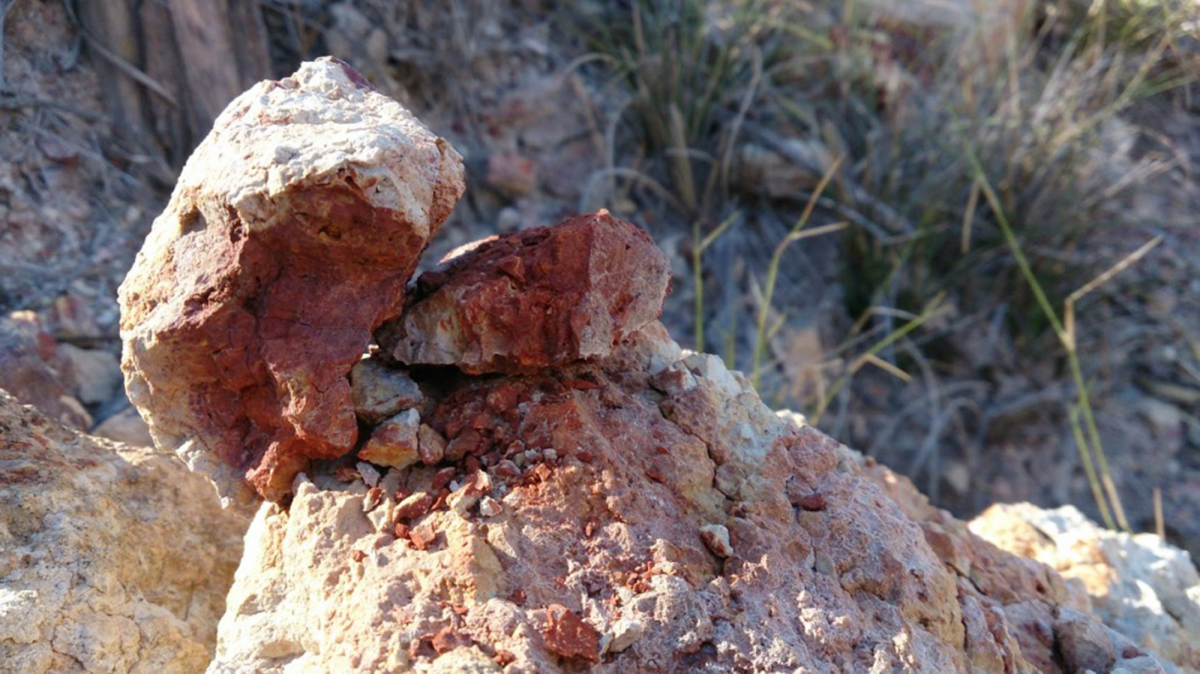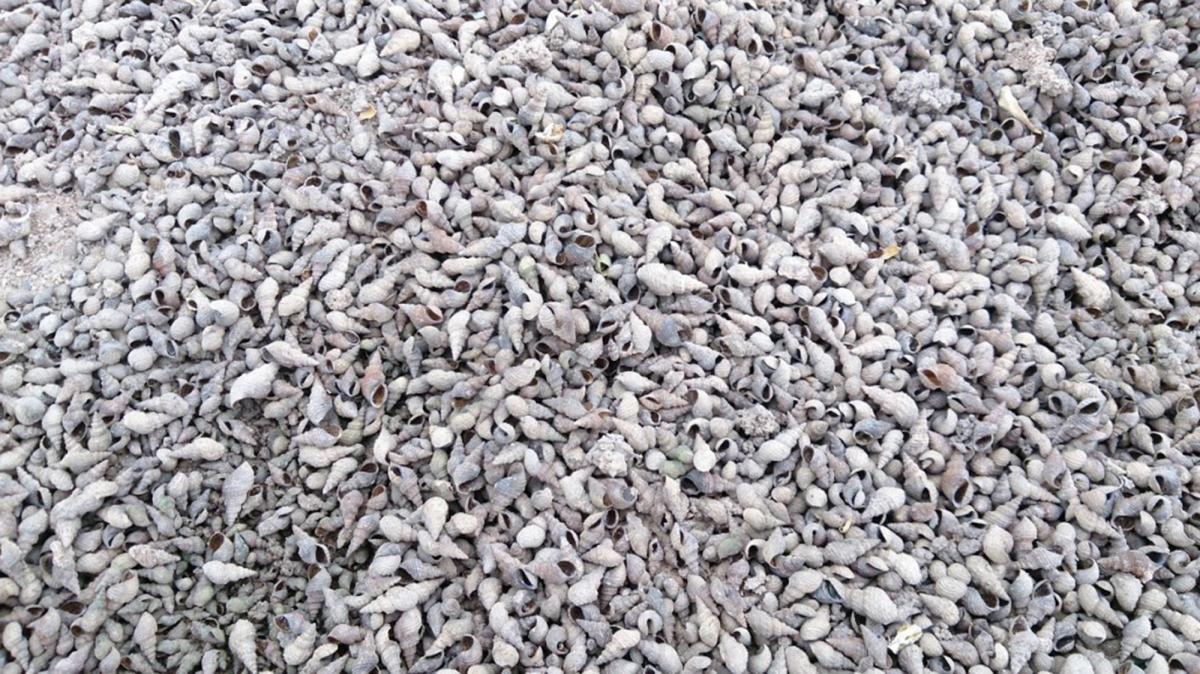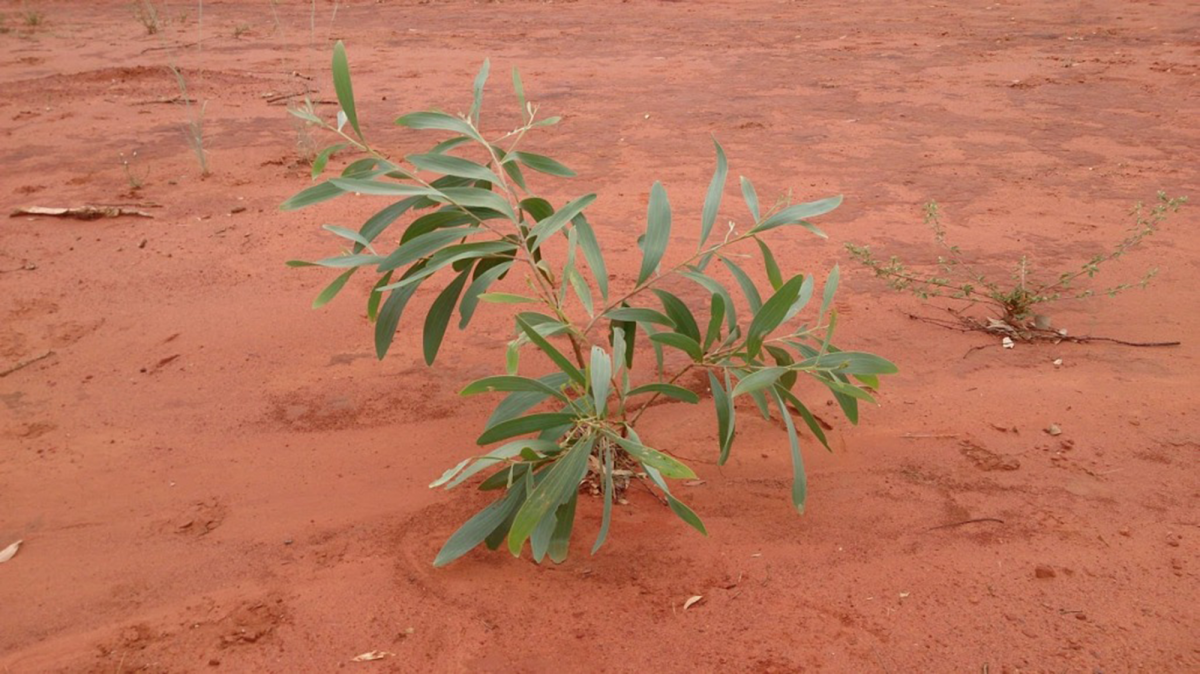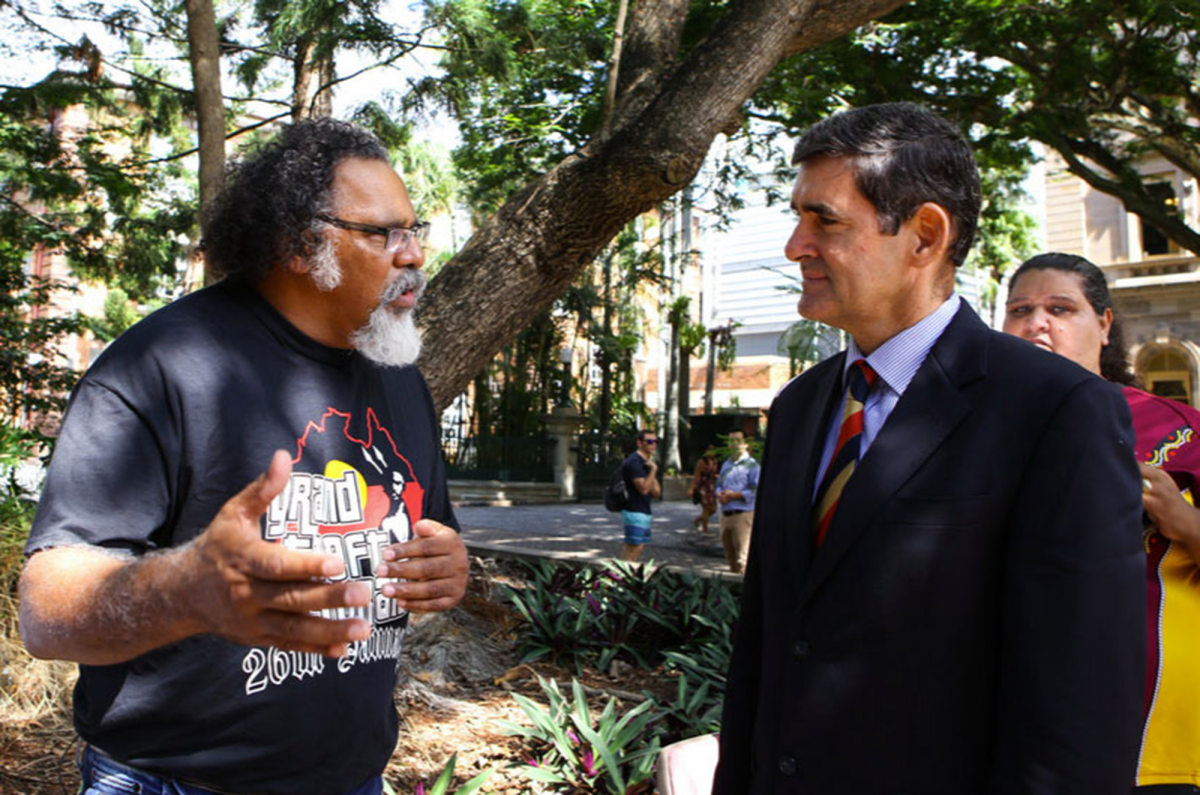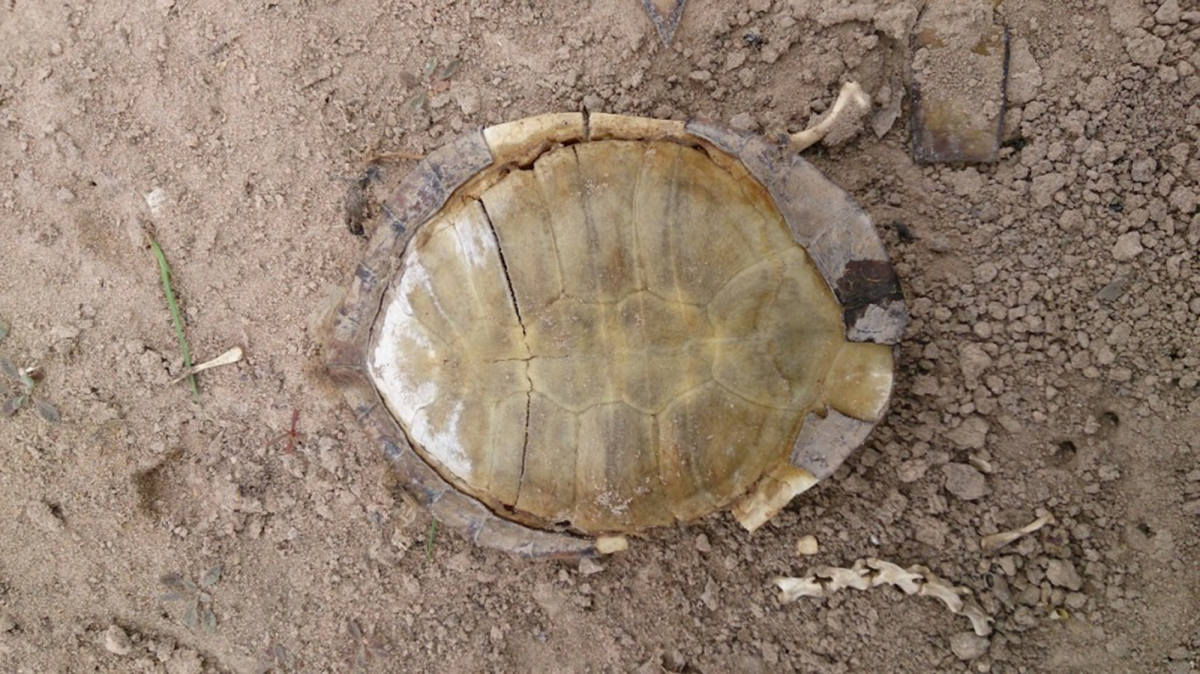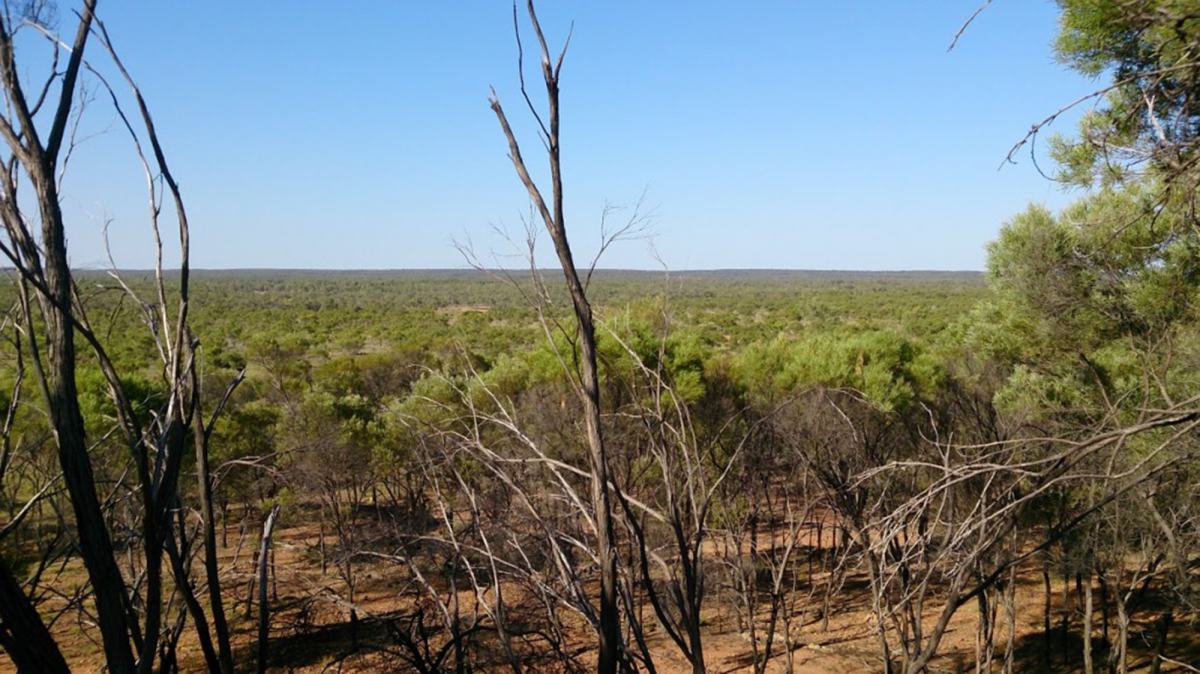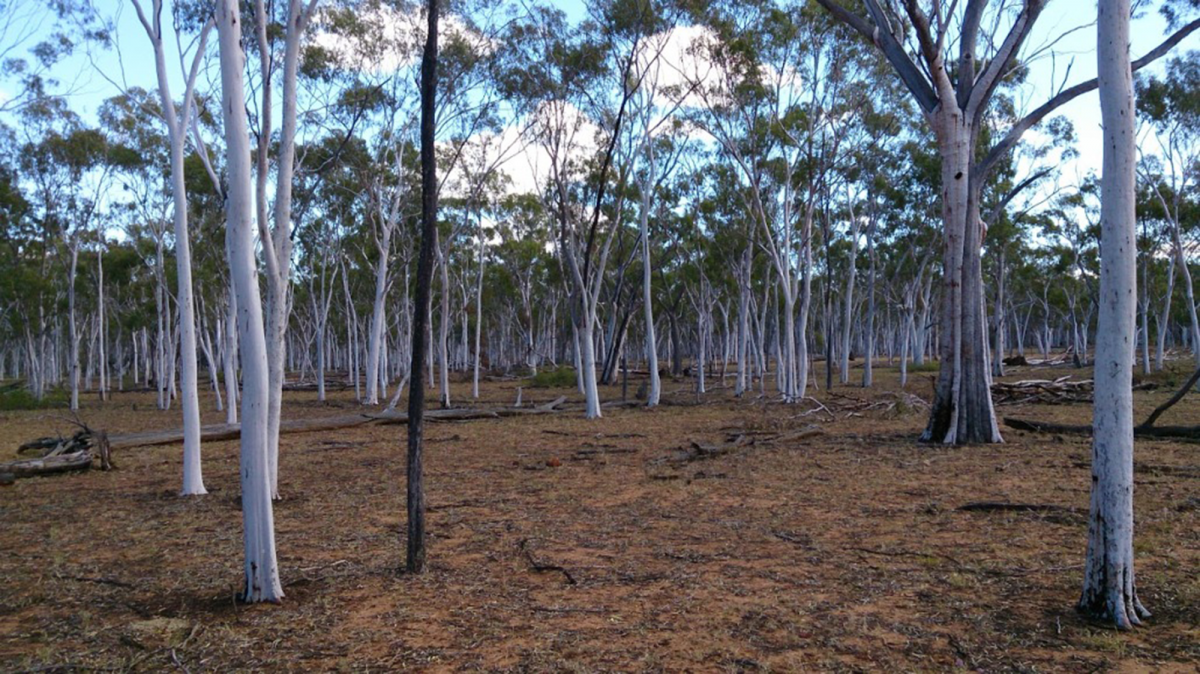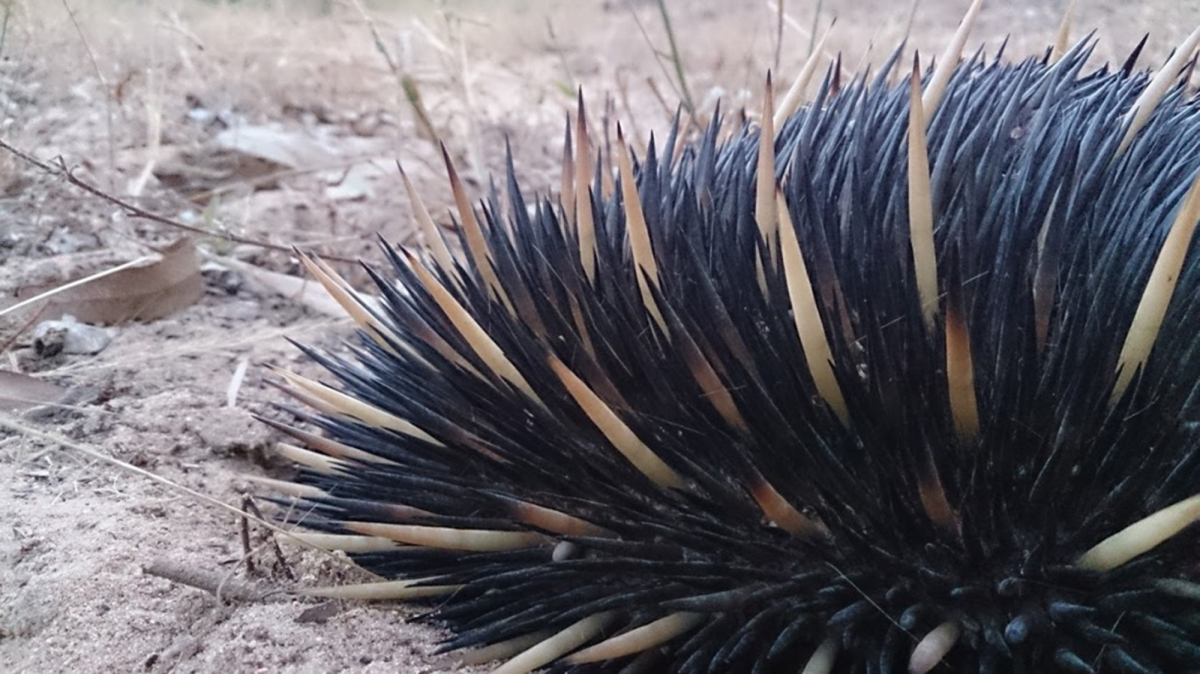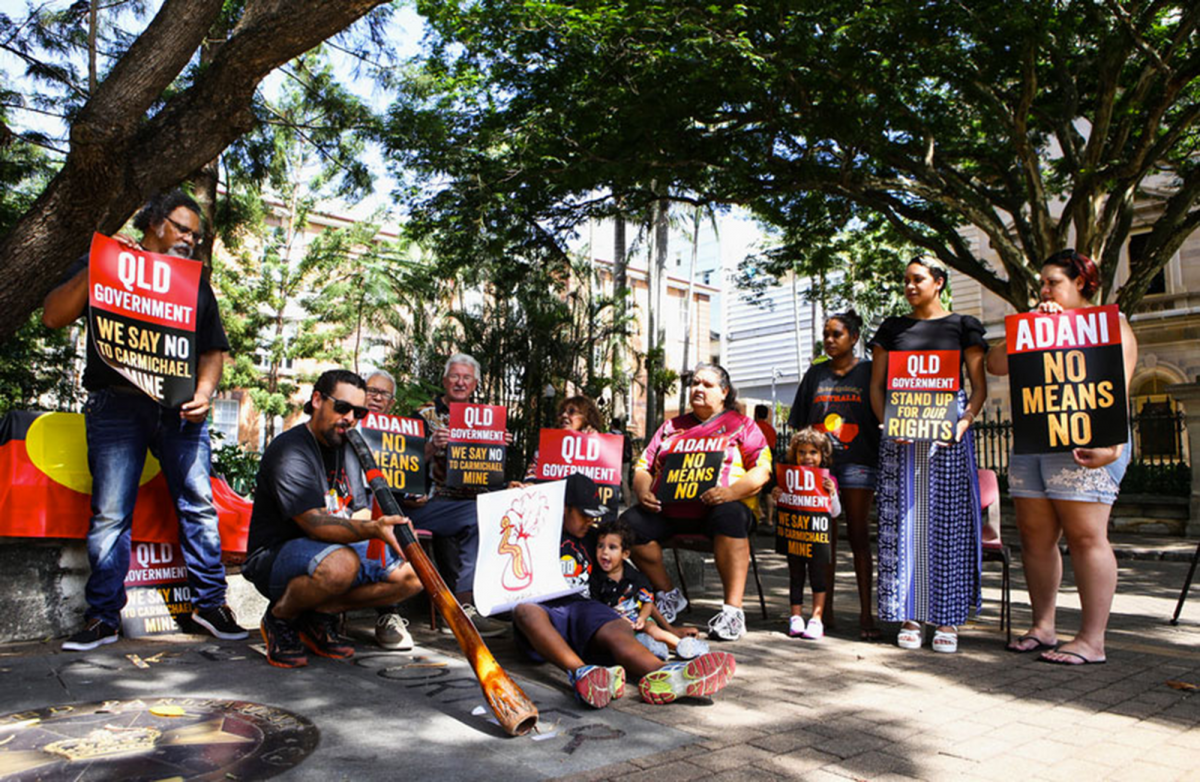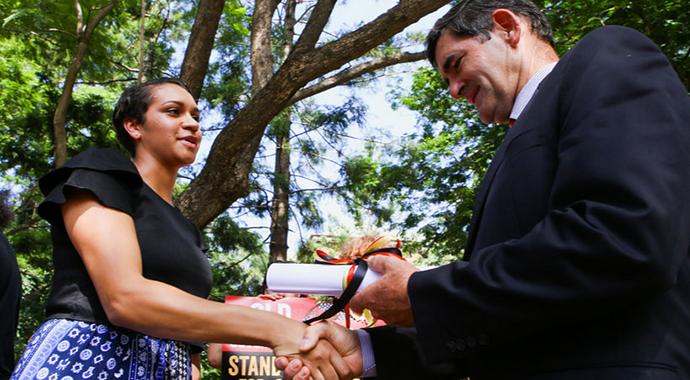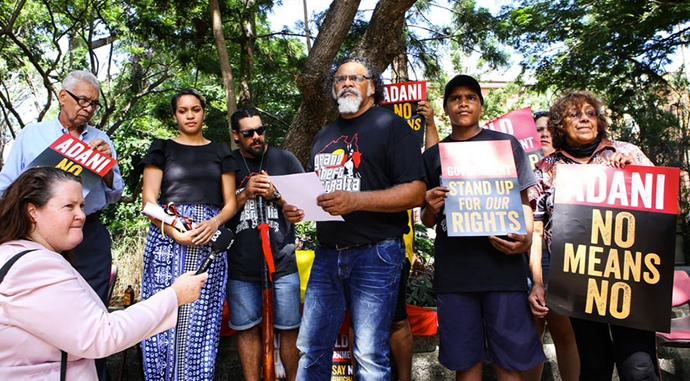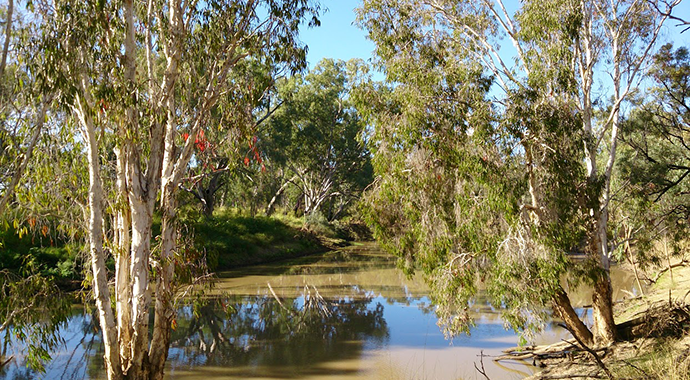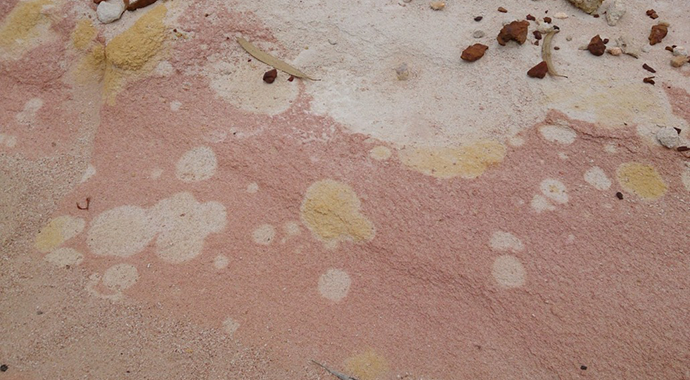Murrawah Maroochy Johnson on climate justice, sovereignty and self-determination
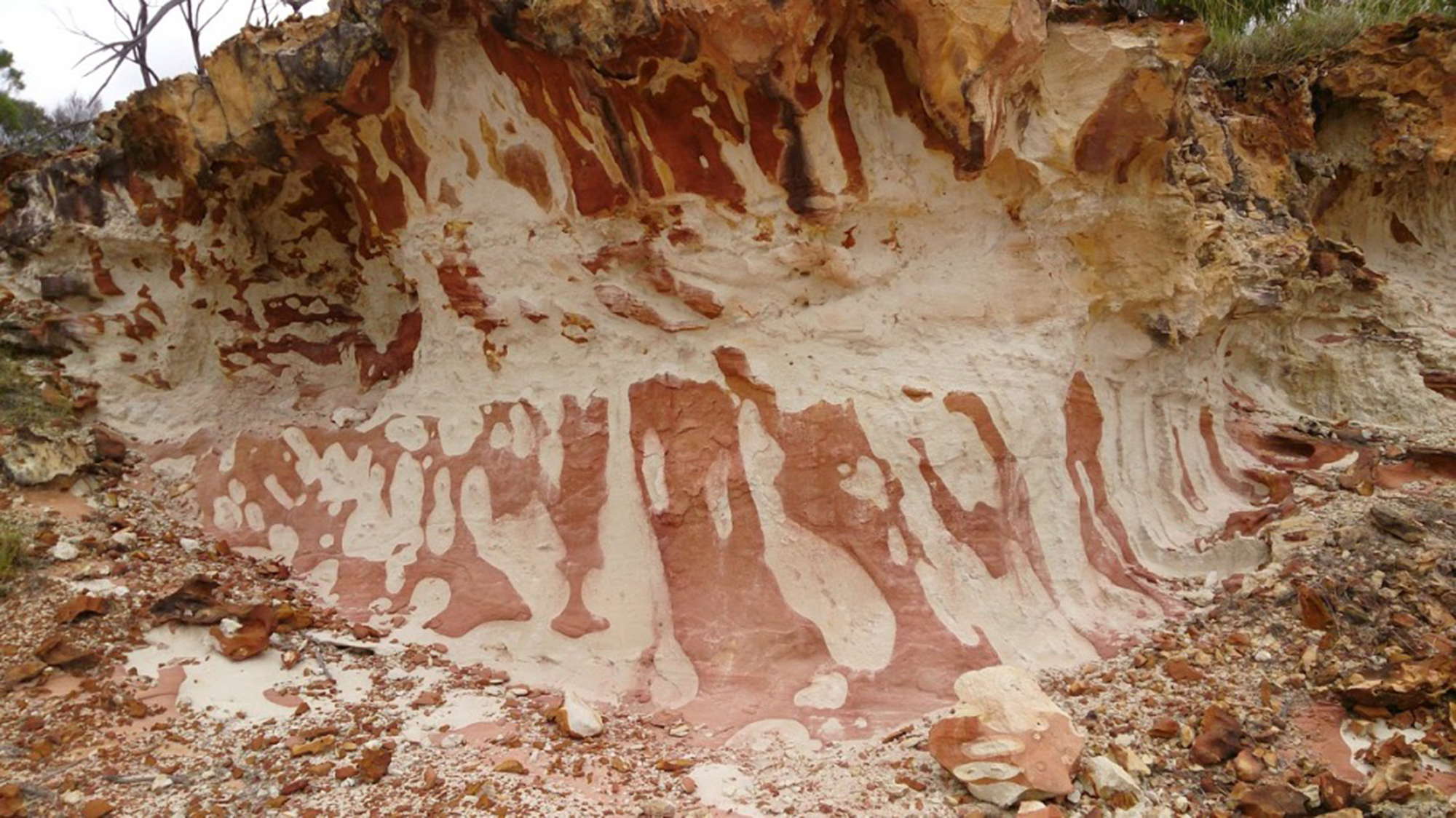
In the face of rapidly developing climate change and a fossil fuel industry desperately trying to hold onto old ways, now is the time to centre the voices and longstanding resistance of First Nations people. So goes the call-to-action of the Wangan & Jagalingou Traditional Owners Family Council, who since 2012 have been fighting the proposed Carmichael mine in central Queensland. As the struggle continues well into 2017, Roj Amedi speaks to tireless campaign representative Murrawah Maroochy Johnson about climate justice, Aboriginal sovereignty and the importance of self-determination.
Murrawah Maroochy Johnson is the type of person who carries her history in her bones. Her presence is powerful, impassioned and captivating. A 22-year-old woman from Wangan and Jagalingou (W&J) country in central Queensland, she is the youngest member of the W&J Traditional Owners Family Council and has been at the forefront of a two-and-a-half-year strategy to reinforce her people’s right to ownership and protection of their land from the Adani Carmichael mine project.
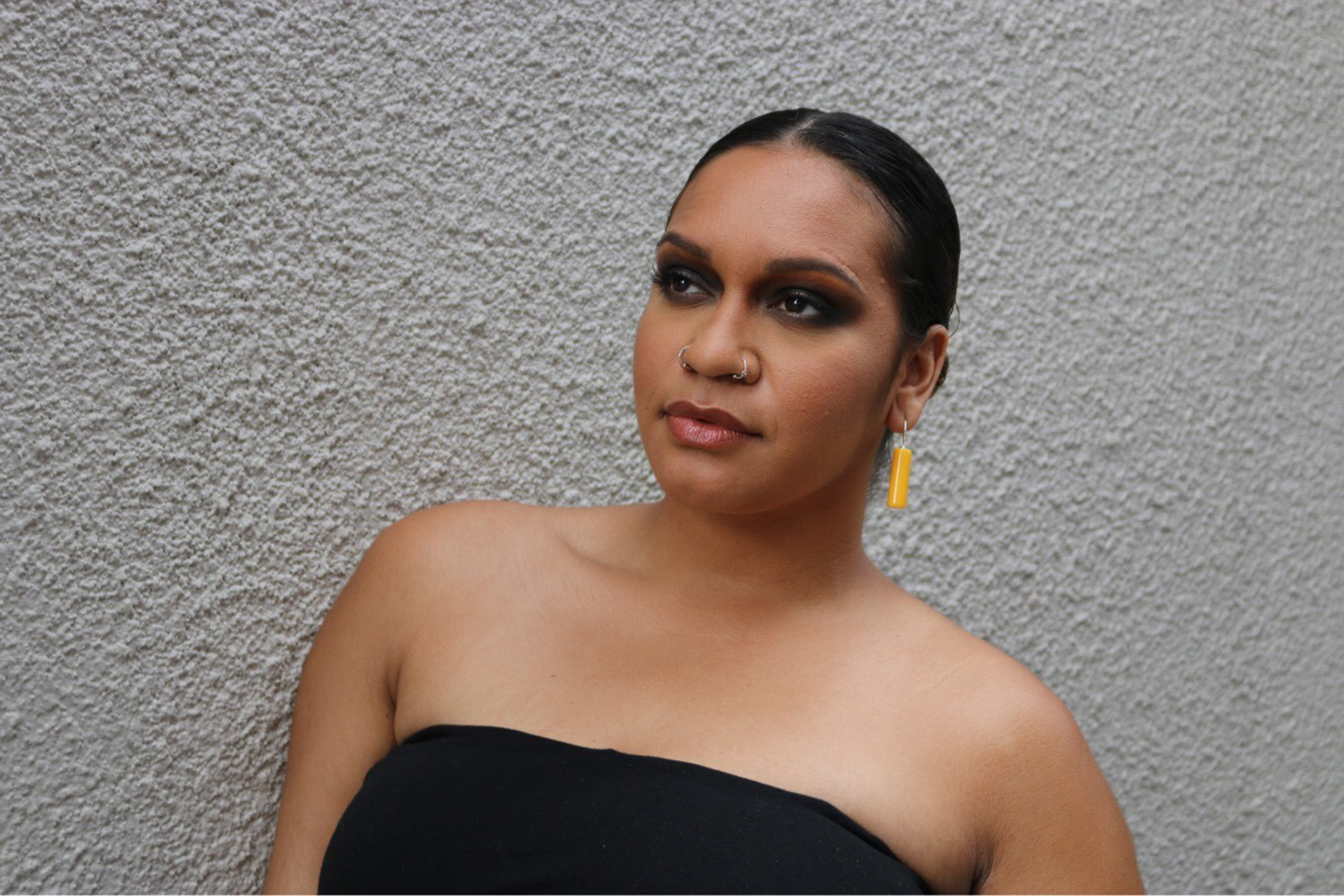
“When we say we speak for Country, that’s literally what we mean. The earth can’t speak for itself, and the water can’t speak for itself, and it’s our duty to speak for it. And that’s how we protect it. When you wipe out the people who speak for Country then you don’t have to seek consent,” reflects Murrawah over Skype during the height of the campaign in February 2017.
The Adani Group proposed to build the largest new coal mine at 40×13km, with 6 open-cut pits and 16 underground pits, only 10km from the Great Artesian Basin. The risk to the water tables is unprecedented, with a proposed permanent railway line planned between the Basin and Abbott Point Coal Terminal, south of Townsville. Not only is the proposed project environmentally destructive, says Murrawah, but it would also significantly impede on the sacred lands of the W&J people and prevent them from practicing their customs and culture. Within current legal regimes, the only option available to Aboriginal and Torres Strait Islander people is to apply for native title – an option often riddled with systematic obstructions.
The Native Title Act (NTA) was passed in 1993, one year after Torres Strait Islander man Eddie Mabo successfully proved his people’s rightful ownership of their land, overturning the legal doctrine and colonial concept of terra nullius (literally ‘nobody’s land’) in the process. The NTA was first utilised in 1996 through the successful application by the Wik people of Cape York Peninsula in a decision that saw native title applied to mainland Australia for the first time, bringing into question the status of almost 60 percent of the continent under leaseholds and other ‘non-extinguishing’ tenures.
The Howard Government quickly responded by putting together a group of lawyers to amend the Act which, in Murrawah’s opinion, existed to slow down future applications for native title. “They’ve written a legislation and amended it in such a way that it’s totally process driven, and it actually undoes everything that the Act was initially meant to do. We have no decision-making power, yet we’re forced to be in this space because if we don’t participate, mining companies and developers can say that they tried to include us and we refused to engage.”
Murrawah points to the subsection in the NTA explaining the ‘Right to Negotiate’. This particular mechanism allows native title applicants to explore the full breadth of any project only if they have a desire to reach an agreement with those proposing the project. According to Murrawah, this subsection is essentially an ultimatum to either engage with and adhere to the terms of an agreement that are unsuitable and unjust, or relinquish the right to object.
“I would argue that [the Right to Negotiate] occurs with Aboriginal people under duress. Because what happens is that if you don’t negotiate, if you refuse to meet and if you don’t consult? These developers will just go for compulsory acquisition anyway. There’s little chance for compensation, and there’s no chance for Aboriginal people to have any say over what happens to their Country.” If companies fail to gain the consent of the traditional owners, they can still approach the Native Title Tribunal to gain approval on the grounds that the traditional owners do not consent but the project should still go ahead for the public good.
The NTA, says Murrawah, essentially provides a stifling and ultimatum-ridden method of reclaiming the right to protect, live and practice culture on country. “The hope is that if you’re under stress long enough, either you’ll die and you won’t be a problem anymore or you’ll start in-fights. And then it divides native title claims up, and then claims fall apart, and then they get withdrawn,” she adds.
“Existing as an Aboriginal person is a political statement. If you want to be Aboriginal and be Aboriginal in the way that you want to be cultured and have connection to your Country and maintain connection to your Aboriginality, then you’re forced to participate in native title … That doesn’t apply to anyone else in the country. They’re free to go and do those things and accumulate their own wealth and also claim wealth.”
After refusing the application by the Adani Group in 2012, the W&J Family Council realised that native title would not be an effective tool in protecting sovereignty. So they set-off to initiate a public campaign, raising awareness about their story and gaining support from the public. Part of this campaign involved approaching the eight banks who had agreed to invest in the project. Alongside other Council members, including her uncle Adrian Burragubba, Murrawah travelled to North America, Europe and Asia to meet with Bank of America, Goldman Sachs, Citibank, the Export-Import Bank of the United States, UBS, Credit Suisse and Standard Chartered. These meetings involved sitting down with executive decision-makers not only to discourage them from investing in the Adani project, but also to interrogate the overstated long-term gains in a time when coal prices are dropping. Focussed principally on stopping the establishment of the coal mine, the W&J Family Council has so far managed to prevent any banks from lending money to the mining project. “If everything we’re doing fails in Australia then at least we know that they can never get the capital that they need – even once they do everything they need to bypass us – to even get it off the ground,” says Murrawah.
The process of proving your existence, value and connection to land is an insurmountable burden in a context where the systems surrounding your personhood are designed to erase and silence your self-determination. This global campaign to ensure the survival of the W&J people is an immense feat for any person, let alone a woman in her early twenties taking on some of the most powerful financial institutions in the world.
“The whole time, there had been people trying to undo everything. Trying to undo the work we were doing by undermining it and saying it didn’t mean anything.” After several weeks of continuous flying, Murrawah returned back home to university and campus living. “It was the first time I ever felt hopeless, empty … I was so exhausted, the most drained I’ve ever been in my life that I eventually passed out on the floor and I woke up the next day, still on the floor – light on, door open, clothes and shoes on. The next morning I immediately got up, had a shower, got dressed, and turned up to a day filled with meetings.”
Every direction the campaign went, says Murrawah, the W&J Family Council faced alleged corruption, voter stacking, money laundering and manipulation by Adani. A breakthrough arrived in the form of the Noongar Federal Court decision on 2 February 2017, which stipulated that all native title ‘area agreements’ need all Aboriginal representatives to sign off on the final decision. Before the Federal Government moved to introduce a bill to reverse the effect of the decision, the Noongar decision instantly cast doubt on the W&J Indigenous Land Use Agreement (ILUA) signed by seven of the twelve applicants in 2016 – the very same ILUA that was crucial for the advancement of the Carmichael mine. Without this agreement, the Queensland Government’s only choice is to forcibly take Native Title on W&J land and move ahead with a project that even investors had turned their back on.
Murrawah believes that native title and the specific confines of its mechanisms fail to uphold the rights and freedoms of the traditional owners of over 600 nations in Australia. Ultimately, says Murrawah, Aboriginal and Torres Strait Islander people cannot contest under the confines of these agreements or refuse to negotiate on unfair terms because the Native Title Tribunal can move forward with land use applications under compulsory acquisition provisions in the name of the greater good.
Alongside the W&J Family Council’s campaign there exist other, ecologically focused campaigns against the Carmichael mine. Murrawah sees a clear delineation between her people’s resistance and these other campaigns. “They still have an extractivist approach to the environment, even though they’re trying to protect it … People who are in paid roles in environmental organisations especially get paid to do jobs, protecting the environment, that were stolen from Aboriginal people.” Even though these organisations and campaigns have seemingly congruent aims – to halt the building of the Carmichael mine – Murrawah believes they tend to overlook the fact that they are visitors on traditional lands, arguing that this approach to environmentalism is “still paternalism”.
“I think there is an imposed black–green alliance. Those in charge of environmental NGOs assume that if they care about the environment and I am Aboriginal that we should go together. But I argue that if you struggle with white supremacy, the patriarchy and homophobia but are anti-Indigenous or anti-black, then no, we don’t go together.” Murrawah continues, “Everyone else can have these incredibly complex roles in society, but Aboriginal people are diminished as people who are just responsible for plants and animals.” This inadvertent subordination, she adds, removes the incredible rich cultural tapestry and connection that Aboriginal people have with their culture, land, lore and law.
Since the onset of the Dakota Access Pipeline protests in the US, which came to a head in 2016, interest has grown around the world in the legacy of First Nations people resisting the destruction of their traditional lands. But this newfound attention comes with its own set of issues, says Murrawah. “People keep on repeating that ‘this is our Standing Rock’, and we’ve got to support the First Nations people in Standing Rock Sioux and their fight against the Dakota Access Pipeline. But this conversation also takes away our power to determine where our fight goes. We never want to get it to that stage where there are live bullets, water cannons, tear gas, tanks, fire and bombs, because we are still responsible for what happens on our Country and what happens to people on our Country.” To speak over the direction and take ownership of the resistance led by the W&J people, says Murrawah, would actively undermine their self determination – the core principal of their campaign.
“We are self-determined people who can talk for ourselves, and that’s what our campaign is about. It’s about us having a voice, saying ‘no’ and having our ‘no’ mean something.
*
This article is taken from the forthcoming Assemble Papers Issue 7: ‘In/formation’ (to be released in mid-March 2017). Thank you to Murrawah Maroochy Johnson and the Wangan & Jagalingou Traditional Owners Family Council for participating in this article & to our legendary studio buddy Roj Amedi for her words. To find out how to support the ongoing campaign, visit the W&J Family Council website and Facebook page.
This article was written in mid-February 2017. Certain developments in the ongoing case may not be reflected.
